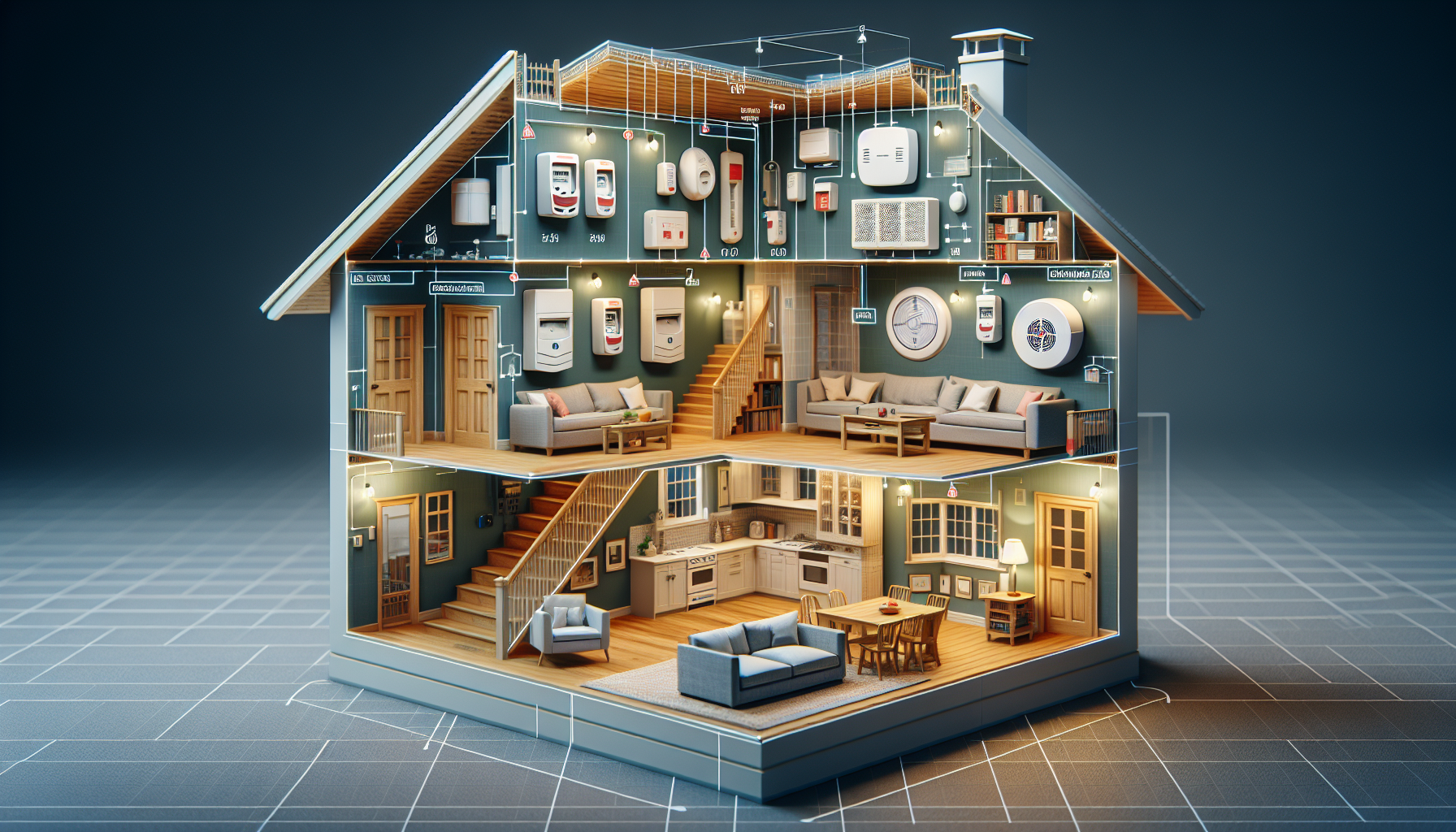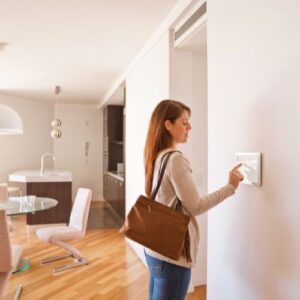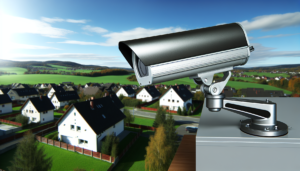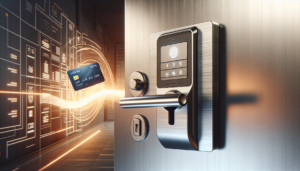As homeowners in the Salt Lake City area, fire safety might be something you think about but push to the back of your mind. However, the peace of mind that comes from knowing your home is equipped with a reliable fire alarm is priceless. At Tri-City Alarm Company, our mission is to illuminate the essential factors every homeowner should consider before choosing a fire alarm system. This guide is crafted just for you, the vigilant homeowner seeking to protect your nest while navigating the world of fire alarm systems with confidence.
Contents
- 1 Understanding the Types of fire alarms
- 2 The Importance of Fire Alarm Placement
- 3 Features to Look For
- 4 Decoding Fire Alarm Maintenance
- 5 Comparing Costs and Budgeting
- 6 Evaluating System Compatibility
- 7 Compliance with Local Fire Code Requirements
- 8 Considering Professional Installation
- 9 DIY Installation Tips
- 10 Conclusion
Understanding the Types of fire alarms
Choosing the right type of fire alarm is the first step in ensuring your home is safe and secure. Essentially, fire alarms can be broadly classified into ionization, photoelectric, and combination alarms.
Ionization alarms are best suited for detecting fast-flaming fires. They are highly sensitive to small particles of smoke, which can benefit homes where rapid fire breakout is a concern. Conversely, photoelectric alarms are perfect for detecting smoldering fires. They perceive larger smoke particles, which could be critical for kitchens where cooking smoke might be frequent.
Combination alarms offer the crème de la crème of both worlds. By integrating the capabilities of ionization and photoelectric technologies, these alarms provide comprehensive protection. While they tend to be pricier, the enhanced safety they provide makes them a wise investment for many homeowners.
The Importance of Fire Alarm Placement
Proper placement significantly increases the efficacy of your fire alarms. If alarms are not strategically positioned, they may not provide the timely warning necessary to ensure safety.
Alarms should be placed on every level of the home, including the basement. Key areas include inside bedrooms and outside sleeping areas. The importance of these placements is that they ensure you can hear the alarm even when asleep. It’s equally crucial to avoid areas like near bathrooms, as steam might trigger false alarms.
For homes with larger rooms or high ceilings, consider additional alarms to cover these expansive spaces adequately. Investing in interconnected alarms, which all sound together once one is triggered, can be a clever move for comprehensive coverage.
Features to Look For
So, what features make a fire alarm system stand out from the crowd? The answer lies in customization and integration.
Smart technology is revolutionizing home safety. Fire alarms that integrate with home automation systems allow you to remotely monitor your alarms and receive instant alerts on your smartphone. Such integration significantly enhances your home’s security network.
Look for alarms with long-life batteries or those connected to your home’s power supply, with battery backup. Considering models with voice alarms is another clever choice, especially for alerting children or older adults who may sleep more soundly or have hearing difficulties.
Decoding Fire Alarm Maintenance
Regular maintenance of your fire alarms is crucial to ensure that they are working effectively. When not maintained properly, the best alarm system can succumb to damage or non-responsiveness over time.
We recommend monthly testing of your alarms to verify their operational status. This involves pressing the test button to ensure that the alarm sounds. Additionally, smoke detectors tend to accumulate dust, which can impair their function.
Consider cleaning them carefully with a small brush attachment on your vacuum cleaner. Annually, it’s vital to replace old batteries with new ones, even if your alarm chirps to indicate low battery power. Also, remember that alarms need to be entirely replaced typically every ten years.
Comparing Costs and Budgeting
Navigating the costs of fire alarm systems can sometimes feel like deciphering a complex puzzle. But fear not! We’re here to help.
The cost of fire alarms can vary widely based on the type, features, and installation requirements. Simple battery-operated alarms are generally more affordable, ranging from $10 to $50 per unit. For hardwired or smart-integrated systems, you could be looking at spending between $100 and $250, sometimes more.
However, consider the long-term investment. Systems rated highly for quality and reliability are typically worth their weight in gold, especially considering the safety of your family. Set a realistic budget and prioritize investing in the areas of your home that are most vulnerable.
Evaluating System Compatibility
Are you interested in integrating your fire alarm with existing smart home technology? Then it’s crucial to understand compatibility.
Some alarms may require a specific central hub or controller to function effectively. Chances are, if you have a preferred smart home system, certain fire alarms may align more seamlessly with it than others.
Checking the system requirements and compatibility with existing home networks can save you both time and money. Furthermore, most manufacturers provide comprehensive guidelines on what technologies mesh best with their systems.
Compliance with Local Fire Code Requirements
Before finalizing your fire alarm system, ensure it aligns with local fire safety codes. This allows you to remain in compliance with legal requirements while optimizing your home’s safety measures.
Each region or municipality may have specific mandates regarding fire safety installations. In many places, non-compliance can result in hefty fines or penalties.
Often, local fire departments provide valuable resources or consultations, assisting homeowners in making compliant choices. This proactive step ensures that your home is safe, legal, and secure, benefiting not only your family but your community as a whole.
Considering Professional Installation
While DIY enthusiasts might be tempted to install their fire alarms, professional installation offers a host of benefits.
Professionals bring expertise and knowledge on the precise positioning and installation of alarms, ensuring optimal performance and compliance. They can identify unique features of your home that might necessitate customized solutions.
A seamless installation process means fewer future headaches and more confidence in your safety equipment. When combined with maintenance packages, professional services can provide lasting peace of mind.
DIY Installation Tips
For those eager to roll up their sleeves and undertake their installation, a few tips can help ensure success. First, identify optimal locations, adhering to the placement guidelines mentioned previously.
Next, be sure to read and follow the manufacturer’s instructions meticulously. It might be tempting to take shortcuts, but every step is vital to functionality.
Finally, test each alarm after installation to ensure they’re working correctly. An initial test ensures every DIY project starts on sound footing, quite literally. With the right preparation and tools, your self-installed system will contribute significantly to household safety.
Conclusion
No homeowner takes safety lightly, and we at Tri-City Alarm Company are dedicated to ensuring yours is as comprehensive and informed as possible. Whether it’s installing a brand new system or simply understanding the importance of timely maintenance, we’re here for you. To secure your home’s safety, contact us by phone at 801-463-3733 or Request a Free Quote today.




